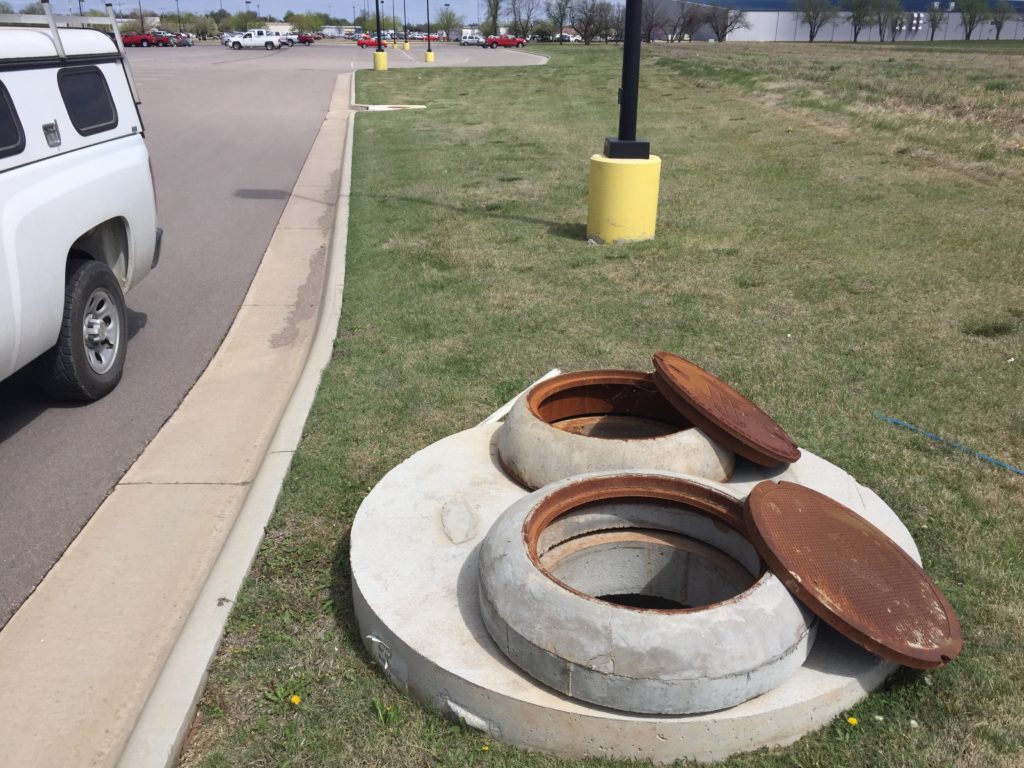Stormwater runoff on development sites is governed by the Environmental Protection Agency’s Clean Water Act nationally, and locally by the Kansas Department of Health and Environment and City of Wichita stormwater regulations. Runoff during and after construction must be treated to prevent sediment-laden waters from traveling offsite.
In Kansas, sites over one acre must provide physical solutions for controlling and treating runoff (permanent best management practices, or BMPs), including options such as stormwater ponds, grass-lined swales and proprietary inlets that filter sediment. However, these measures can be costly. Proprietary inlets are expensive, and other BMPs, such as stormwater ponds, utilize otherwise developable land.
The city of Wichita, its stormwater advisory board, design consultants and the development community set about to find a better, more effective solution. Using research from Kansas State University, it was determined that large-scale, offsite BMPs, such as no-till farming and streambank stabilization, were far more effective in reducing sediments in waterways than the current ‘spot treatment’ regulations.
Using this information, the advisory board developed a new offsite BMP program for new and redeveloped sites, which was accepted by the Kansas Department of Health and Environment as a voluntary option to the construction of physical, permanent onsite BMPs. It does not, however, relieve developers from runoff peak and volume control requirements.

Kansas State University researchers found that stormwater runoff best management practices implemented in rural areas worked better and cost much less than those implemented onsite or offsite in urban areas, such as this hydrodynamic separator.
Developers can participate in the program at a rate of $19 per acre, per year, which is billed in perpetuity as a line item on their water bill. Administered as a partnership between the city of Wichita and the Kansas Watershed Restoration and Protection Strategy program, fees go toward construction of BMPs on agricultural lands offsite and upstream of Wichita. Utilizing this model reduces much of the capital costs associated with development and provides double the annual tonnage of sediment prevention into the local waterways.
The offsite BMP program, adopted by the Wichita City Council in June 2016, is believed to be the first of its kind in the nation. For more information on the program, visit the city of Wichita’s website at Wichita.gov and search for Offsite BMP Program.
—Christopher M. Bohm, PE, president of Ruggles & Bohm, a civil engineering and surveying firm in Wichita, Kansas
This article was originally published in the spring, 2017 issue of Best in American Living™ magazine.

